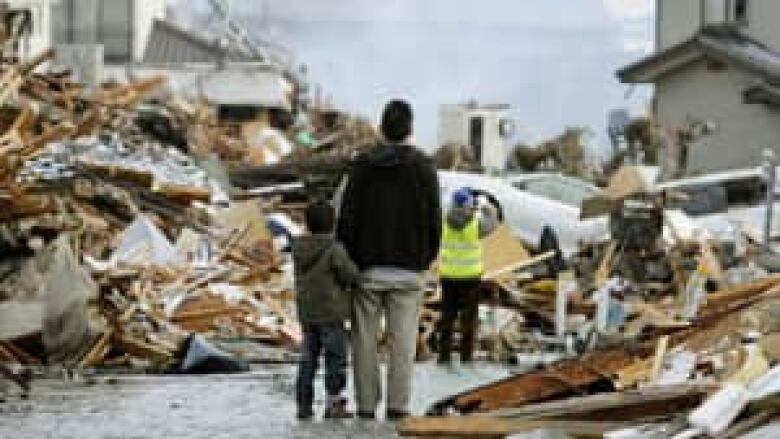Japanese ask: 'Where were you?'
Quake, tsunami already part of national identity
Reporter Amber Hildebrandt, who lived in Japan for several years, returns there for CBCNews.ca in the wake of the March 11 earthquake and tsunami double disaster.
Immediately after arriving Sunday evening in Japan it became clear how Friday's earthquake and tsunami have already become part of the national psyche.
I was met at Narita International Airport by a Japanese friend and a local driver hired by CBC, known in the business as a "fixer." My friend and the fixer chatted about the mood.
"Where were you?" Natsuki asked the fixer. That's the first question everyone asks when they meet someone new. Those few words are already shorthand for: "Where were you when the earthquake hit?"
Officially, it's called the Tohoku-region Pacific Ocean Offshore Earthquake.

However, it's become known here simply as East Japan's Great Quake, or Higashi Nihon Daijishin.
Even though Tokyo wasn't among the hard hit cities, it was still affected and we've seen evidence of that.
There was talk of rationing gasoline, which sparked a run on it. Some gas stations have closed. Cars are lined up at any of them still open.
Rolling power outages are being used to conserve electricity.
Entire rows of convenience store shelves are stripped of food and water, perhaps the most eerie sign yet of the fear sparked by the nuclear plant troubles in Fukushima.
A number of roads are closed in Tokyo. Whether that's an abundance of caution over fears about weakened structures or due to actual problems, we don't know.
We did just witness our first physical evidence of the quake outside Tokyo, a rip across the Highway 51 in Kashima, located in Ibaraki prefecture, as we drive northeast toward the wide swath of damage.
Driving down a backroad we see roof tiles smashed in piles in front of a house.
A gas station in Mito, our resting point for the night, has a sign out front saying "Urekiri", or Sold Out.
These are just small signs of the quake. In a few hours, when the sun rises, we'll see the devastation up close -- and hear the stories firsthand.












_(720p).jpg)


 OFFICIAL HD MUSIC VIDEO.jpg)
.jpg)



























































































